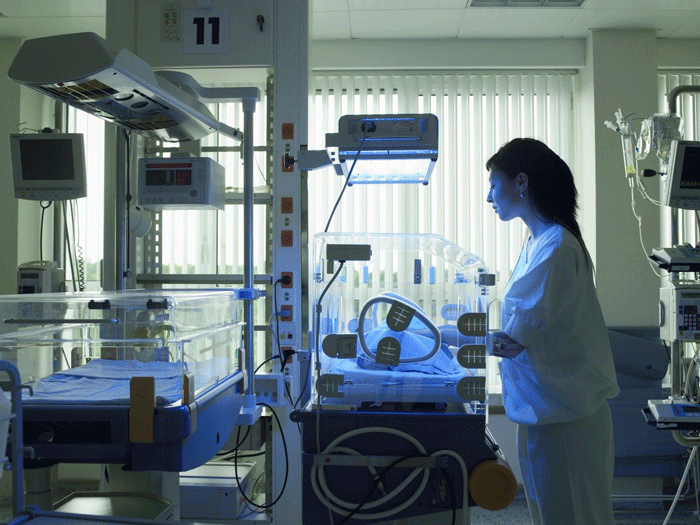Switch to nursing for more job satisfaction
The money's not great, but more people are retraining as nurses mid-career

Your support helps us to tell the story
From reproductive rights to climate change to Big Tech, The Independent is on the ground when the story is developing. Whether it's investigating the financials of Elon Musk's pro-Trump PAC or producing our latest documentary, 'The A Word', which shines a light on the American women fighting for reproductive rights, we know how important it is to parse out the facts from the messaging.
At such a critical moment in US history, we need reporters on the ground. Your donation allows us to keep sending journalists to speak to both sides of the story.
The Independent is trusted by Americans across the entire political spectrum. And unlike many other quality news outlets, we choose not to lock Americans out of our reporting and analysis with paywalls. We believe quality journalism should be available to everyone, paid for by those who can afford it.
Your support makes all the difference.When Lucy Green graduated with a first-class degree in modern languages from the University of Aberystwyth, she did so in the knowledge that she would probably "become a teacher or something". Whatever she did, a glittering career lay ahead. She enrolled on a secretarial course and got a well-paid job as a legal secretary.
But, she says, she always knew that she wanted to do something fulfilling. So Green did what 686,000 other people are doing each year, and, after working in a care home to get some experience, retrained as a nurse at the University of the West of England.
Some of her relations thought she was mad and some of the people on her course assumed she was too much of a boffin. But it turned out not to matter. "Most of the people on my course were mature students so the fact that I had trained as something else wasn't an issue."
One of the appeals of nursing for many career-changers is that there is no upper limit on training. In fact, many courses positively welcome someone with a bit of life experience.
Lynda Fitzgerald, the associate dean of health at the University of Bedfordshire, would encourage people thinking about a career change to consider nursing and midwifery as they are rewarding as well as demanding professions with a variety of career opportunities.
"Nursing and midwifery are careers that more mature people are increasingly considering," she says. "Statistics show that 64 per cent of nurses are aged over 40. We value the life experiences and transferable skills that mature people bring and welcome the widening access routes into our professions. Many of our mature students state that they now feel fulfilled in their chosen career."
Green now lives in Cornwall and works as a community staff nurse, which is similar to district nursing, she says. "The training is really good. When I qualified, I worked on a surgical ward but then applied for a new job in the community, for which I have had loads of on-the-job training."
She chose community nursing because it meant she had time to talk to patients. "On the wards we were always so busy, that I never felt I had any time to devote to individuals," she says. "I like the emphasis we place on keeping people at home and supporting them there."
The downside to nursing and the reason that many of us balk at the idea of retraining is the pay. The minimum starting salary for a registered nurse is £19,683 and the 2007 Annual Survey of Hours and Earnings states that the average wage for a nurse is £23,044.
"For the level of responsibility we have, it is poor," says Green. "I feel we do at least, if not more important, a job as teachers and that should be recognised."
Retraining as a nurse isn't as daunting as it may seem at first. It is advisable to get some experience in a care environment if you aren't familiar with the field. Or, if you aren't sure, try to get work as a healthcare assistant, from which you can go on to full training.
Whatever your background, you'll need to gain a degree or diploma in nursing to work in the NHS, during which the NHS will support you with tuition fees and a possible bursary. As a graduate with a degree in a health-related subject, you could qualify by taking a two-year postgraduate course, though entry requirements vary from university to university.
Green doesn't think she would rather be doing anything else. "It's so fulfilling and interesting and I love my particular patient group," she says. "I really feel I make a difference to people's lives and I can't imagine how I would have got the same satisfaction had I gone down the modern languages route."
How to get in
For careers and application advice visit the Royal College of Nursing's website – www.rcn.org.uk
If you already have a degree in a health-related subject, the Faculty of Health and Social Care Sciences, Kingston University, St George's Hospital, offers a Diploma of Higher Education in Nursing/Registered Nurse –www.healthcare.ac.uk.
The University of Bedfordshire's next open day is on 28 June at Aylesbury Vale Education Centre, Stoke Mandeville Hospital – www.beds.ac.uk/departments/healthsciences.
London South Bank University's next nursing recruitment day is on 12 February. www.lsbu.ac.uk/hsc.
Join our commenting forum
Join thought-provoking conversations, follow other Independent readers and see their replies
Comments